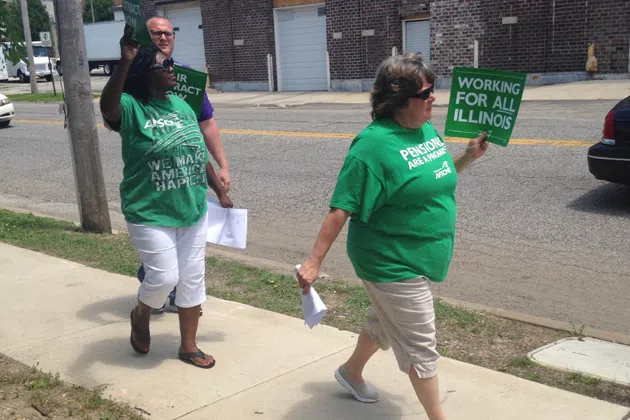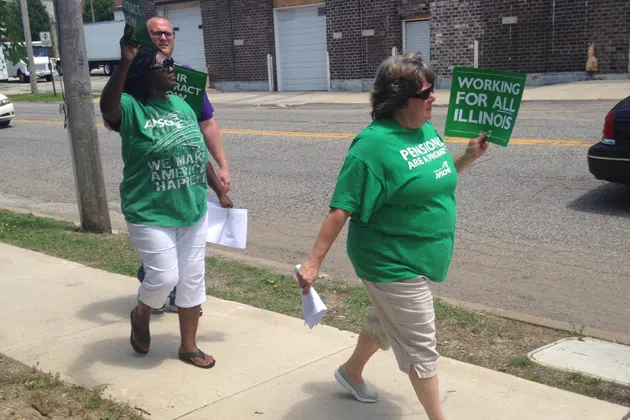
By IRN
Talk of a strike seems to be heating up among members of the state’s largest public-sector employee union.
The American Federation of State, County and Municipal Employees has reportedly been polling its members about a potential strike. A form posted to a political blog asked members to choose whether they’d strike if a satisfactory contract isn’t reached, and why or why not.
Gov. Bruce Rauner’s General Counsel Jason Barclay said a strike could result in serious disruption in union members’ lives, such as loss of wages and health insurance and potential permanent replacement. Barclay said the administration has heard that a strike date has been set for Sept. 1.
AFSCME spokesman Anders Lindall didn’t return messages seeking comment but told Springfield’s The State Journal-Register the union has a responsibility to inform members about the status of contract negotiations so they can make the decision that’s best for them.
If a strike were to happen, it would be the first in AFSCME’s history of representing Illinois public-sector employees.
Heritage Foundation Labor Economics Research Fellow James Sherk said a state-worker strike might not produce a strong public reaction. “It’s one thing when you’ve got transit and you can’t get to work in the morning, or your day and your commute are wrecked; it’s another thing when some government bureaucracy you haven’t really heard about and doesn’t affect your day-to-day life at all is going on strike. I think that would tend to have a more muted effect for both sides.”
Sherk said people who didn’t agree with the union’s financial demands could view the union as greedy.
As to the impact on the public’s opinion of the governor?
“The effect on him would probably depend on the extent to which the public believes that this was something he was doing in their interest. Was he actually trying to fight for them? Is it something worth happening? And to the extent that the public feels inconvenienced by the strike,” Sherk said.





